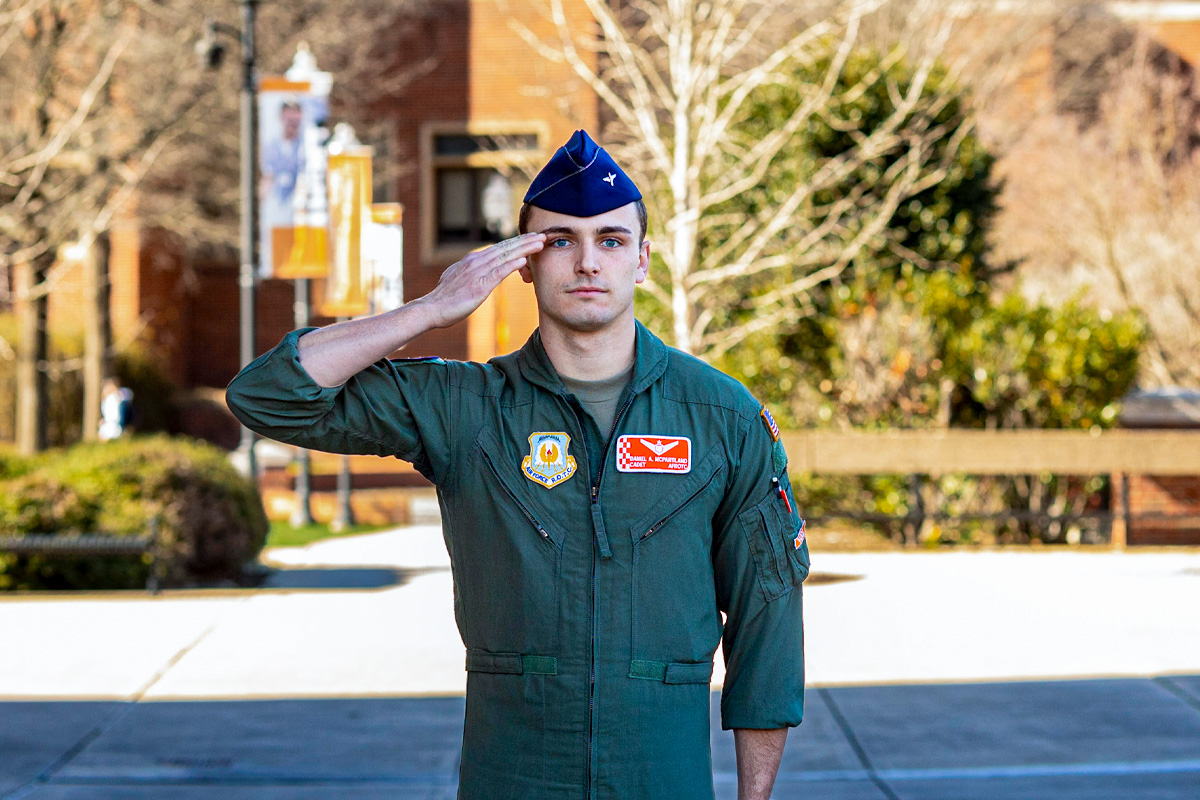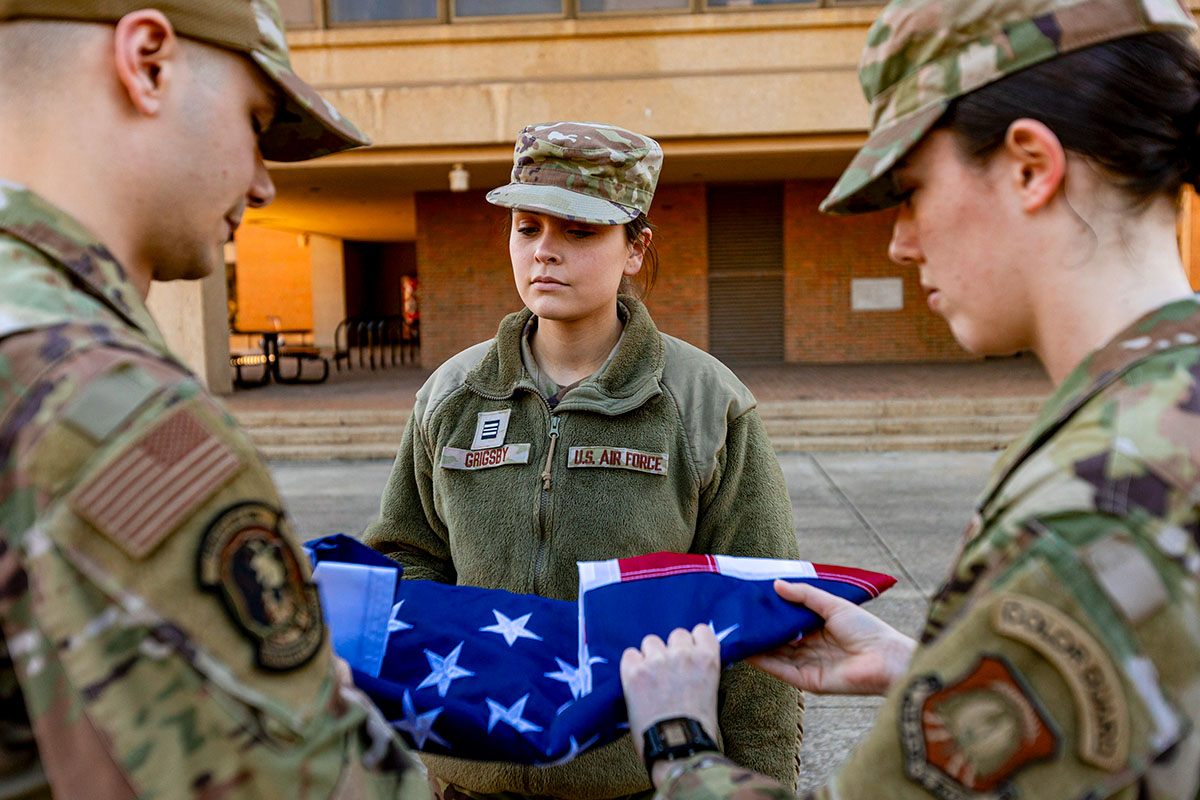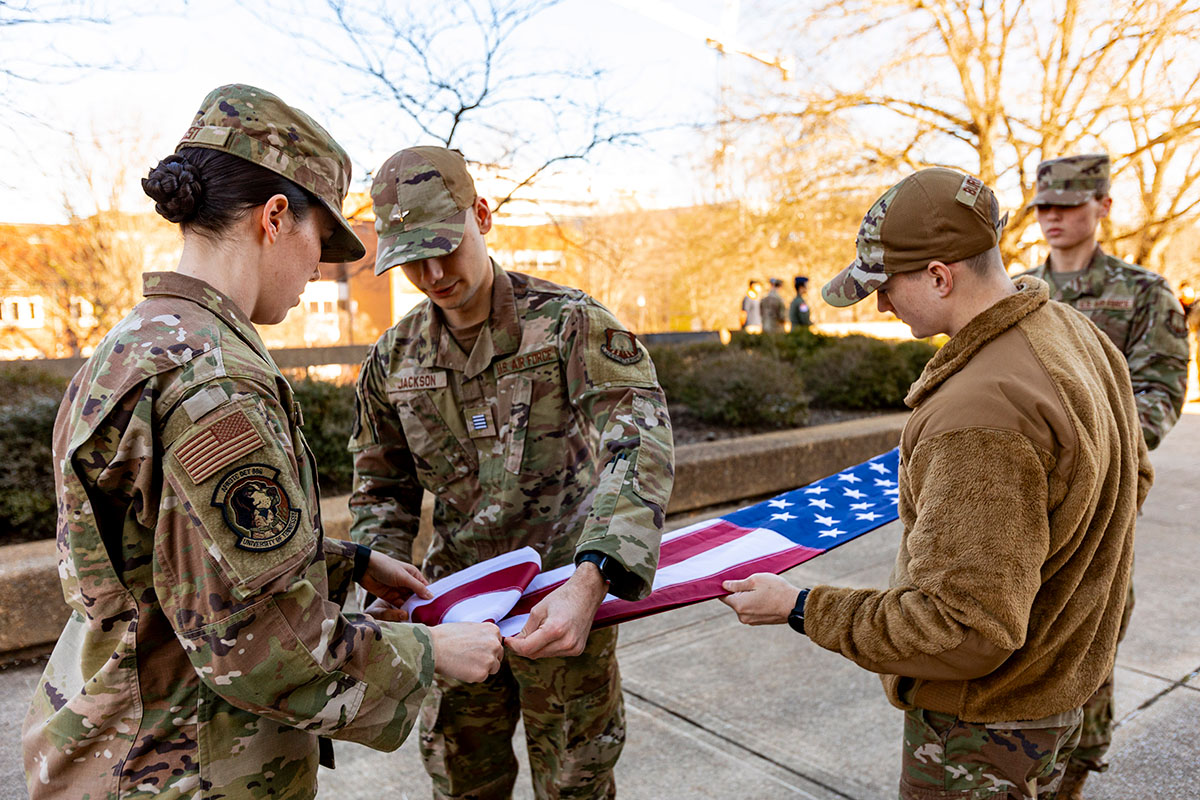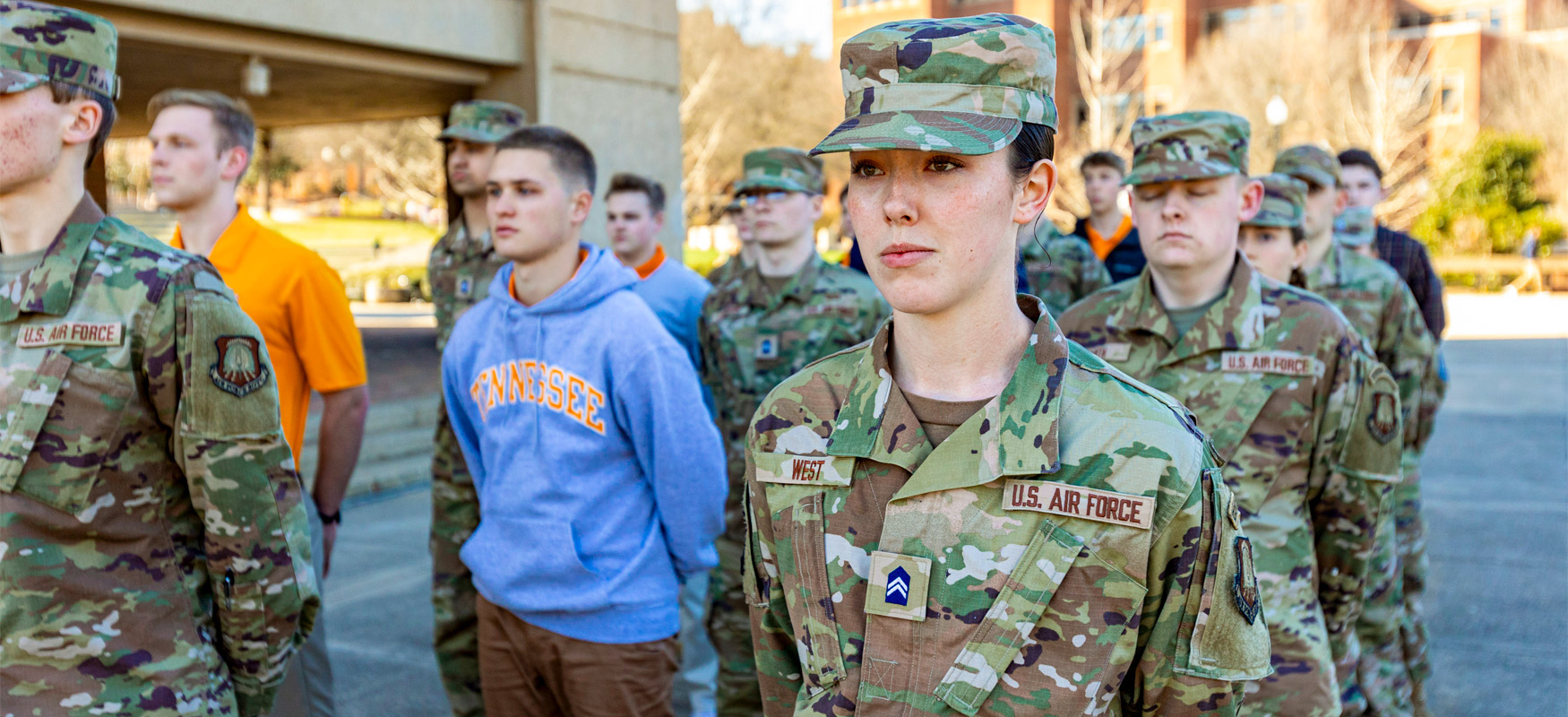Air Force ROTC Prepares Engineers for Future Success
Ryan Grychowski was having difficulty adjusting to the demands of being a first-year college student in a new state. The pressure of his academics, social life, and participation in the Air Force Reserve Officer Training Corps (AFROTC) at the University of Tennessee felt a bit overwhelming.
Everything changed after a call from his commander.
The commander informed Grychowski about a special opportunity. The Air Force ROTC noticed how well Grychowski was doing in his classes and wanted to offer him a scholarship to start flight school.
It was the first time Grychowski felt anyone outside of his family recognized his work. It gave the Illinois native motivation to consider a career as a pilot. Grychowski used the scholarship to begin taking flying lessons at the Knoxville Downtown Island Airport in the spring of 2023.
“I don’t think I’ve ever had more fun before than flying an airplane. That was the moment that changed my mind about getting involved with the Air Force,” said Grychowski, a sophomore majoring in computer science. “I never had an opportunity like that before and it made me realize I am capable of more things than I realized, and people were noticing.”
UT’s Air Force ROTC attracts many engineering students like Grychowski who utilize the program to gain valuable leadership training and a springboard to future careers. Given the need for more STEM-focused students, the Air Force ROTC attracts more engineering majors than some other military branches. UT’s program has about 120 students this year, with nearly 40 percent consisting of engineering students.
“I really see these students as being the most well-rounded,” said Lt Col Damien Johnson, the department head of UT’s Air Force ROTC program. “All my engineering students, I only have to say it once and they understand. What UT is building here is not only a good graduate, but an effective communicator and someone who can follow and lead at the same time. That is the secret sauce.”
Johnson is a product of UT’s AFROTC program. He joined as a sophomore and graduated in 2006. He’s been in the military for 17 years with a background as an aviator and weapons system officer.

Cadets invest time for growth
AFROTC students can receive up to $100,000 in tuition assistance by the time they graduate. Cadets receive the in-state tuition rate regardless of their state of residence. They have at least a four-year commitment to the Air Force following graduation, with pilots, navigators, doctors, and lawyers having extended commitments.
AFROTC cadets are commissioned as second lieutenants on active duty in the Air Force or Space Force once they graduate and receive a salary as an Air Force officer. Once their commitment if fulfilled, they can remain in the Air Force or Space Force or join the private sector.
“They outrank approximately 80 percent of the military the day they get on active duty as a lieutenant,” Johnson said. “They are going into pretty serious, pretty cumbersome roles right away, so we want to make sure we are pushing the best forward.”
Cadets dedicate three-to-eight hours a week to AFROTC depending on grade level. During every semester, they are asked to take aerospace studies classes and do weekly physical training sessions. The commitment is about 24 additional credit hours on top of their normal academic load.
In the summer between their sophomore and junior year, cadets attend field training at Maxwell Air Force Base in Montgomery, Alabama. The two-week boot-camp style program includes physical conditioning, deployment skills, and weapons and survival training.
Hannah Denison spent her freshman year at Embry Riddle Aeronautical in Arizona before transferring to UT. The junior aerospace engineering major wanted to serve the country and knew the AFROTC could help pay for her college education. Denison wants to work in intelligence and has benefitted greatly from the people skills she’s acquired.
“From the beginning, you have to interact with all sorts of different people and are establishing relationships at a very professional level and also a peer-to-peer level,” Denison said. “It teaches you how to get things done and how to make sure you are taking care of your team and people. I think it’s one of the few places in college where you get that experience.”
AFROTC cadets have received many development opportunities within academia to enhance their skills. The unit has placed students at Y-12 and into programs run by Department of Mechanical, Aerospace and Biomedical Engineering Professor Tony Schmitz at the Machine Tool Research Center in the TN-MADE facility in Hardin Valley.
UT consistently ranks in the top third for size, test scores, and cumulative GPA among Air Force ROTC programs in the Southeastern Region.
“There are a lot of levels of support here being in the South. We love our military; we always hear that. But we actually see that here,” Johnson said. “The provost is very good about supporting our needs. We are very well supported by the university.”
Lucrative post-college opportunities
Evan Ellison, a junior industrial engineering major, had a grandfather who served in the Navy. Inspired to serve as well, he joined the AFROTC as a freshman. Ellison is hoping to be commissioned into the Space Force as an operations officer and wants to stay in for 20 years.
“One of the primary reasons is it complements an industrial engineering degree very well, and I also loved space as a kid,” Ellison said. “I had stars on the ceiling and my whole bedroom was space themed and I built model rockets. The Space Force has always interested me.”
Sally Grigsby joined AFROTC in the spring semester of her freshman year and switched her major from biochemistry to electrical engineering.

“I started off college a little more introverted and didn’t have any time management skills. But once I joined Air Force ROTC, everything changed,” Grigsby said. “I realized I did have those skills and it translated into other areas of my life. I have no problem commanding a room and doing presentations in class and my time management has gotten down to a tee.”
Grigsby plans to get her master’s degree in aerospace engineering and serve the full 20 years in the Air Force. She’s interested in doing flight test engineering or working in development. Last summer, she served an internship last summer with Northrop Grumman in Manhattan Beach, Calif.
“I think there is a common misconception that everybody in the Air Force wants to be a pilot or do something like a type of Top Gun thing. But that is not the case at all,” Grigsby said. “The Air Force employees a variety of majors and is really trying to recruit a diverse workforce. There are so many different options and I think that is what brings in a lot of engineering majors.”
Cadet Wing Commander Mark Jackson, a senior nuclear engineering major, wants to be a test pilot in the Air Force. He’s been involved with AFROTC all four years at UT.
“It’s one of the main reasons I am doing engineering because test pilots need an engineering or STEM degree,” Jackson said. “Once you compete for spots and get in, you get to test any new weapons the Air Force develops and make sure those are safe to fly and use. ROTC really prepares you to take on those roles.”
Forming confident, future leaders
Although scholarships, tuition discounts, and job security are major attractions to joining the AFROTC, cadets often discover the benefits are more far reaching.
“I think the incentives get them in the door, but I think the reason they stay is a little bit different,” Johnson said. “I think when they get in and realize they can make an actual impactful difference early on in their career using some of these engineering strengths, that is a huge bonus.”
Ellison has developed specific technical skills and knowledge in AFROTC that will be useful once he leaves UT. However, the most impactful ability has a more universal application.

“More than anything, Air Force ROTC has taught me you are capable of working with anybody,” Ellison said. “Diversity is not an obstacle to teamwork, and no matter the background, everyone brings something valuable to the table.”
Through AFROTC, Grychowski discovered a passion for flying he didn’t know existed before. He’s become a more confident person and ready to tackle anything that comes his way during college.
“The opportunities I’ve had are really exceptional and it’s really pushed me out of my comfort zone and developed me into somebody I never thought I would be,” Grychowski said. “I was kind of quiet growing up, but Air Force ROTC has forced me out of my shell and made me understand what I am capable of.”
Contact
Rhiannon Potkey (865-974-0683, rpotkey@utk.edu)
